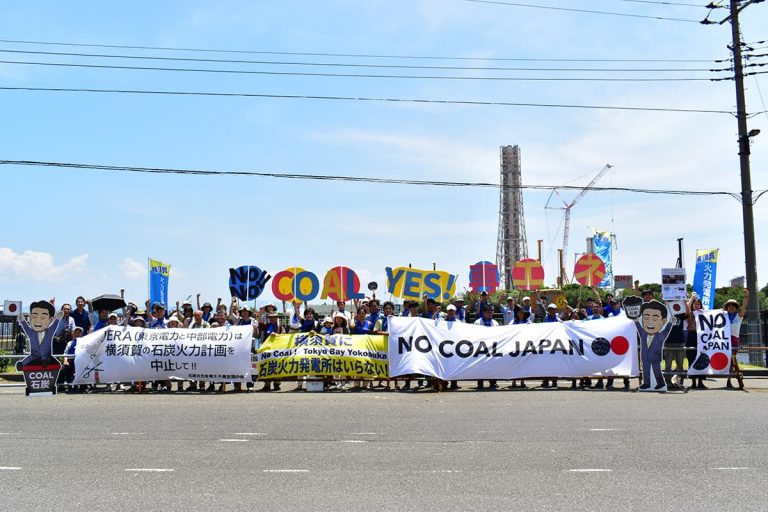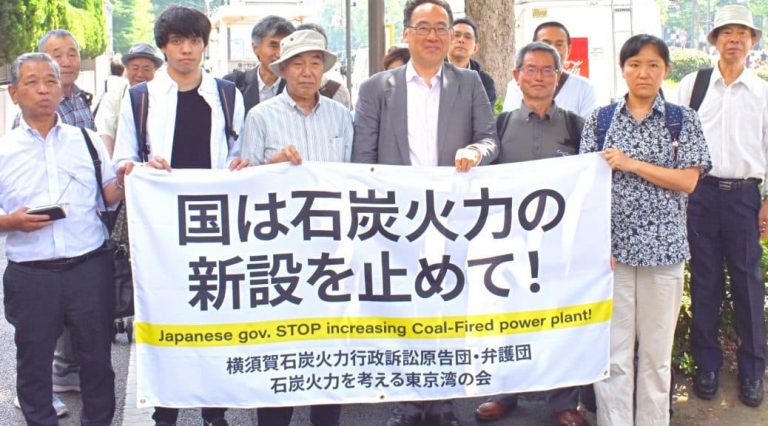In Yokosuka City, Kanagawa Prefecture, construction is underway on two 650 MW coal-fired power generating units (totaling 1,300 MW) . The principal company is JERA, one of Japan’s largest coal power companies, owned by TEPCO Fuel and Power and Chubu Electric Power Co. The project underwent a simplified environmental impact assessment (EIA) process, as it is a replacement plan from oil power plants to coal power plants. However, opponents have objected to the simplified EIA , as the new units will instead burn coal, which creates more CO2 emissions than the oil past used by the plant to generate electricity.
In the Tokyo Bay area, other plans for the construction of large coal-fired power plants in Ichihara, Chiba, and Sodegaura have come to light since 2013. After citizen-led opposition campaigns sprang up in each of these areas, and in 2017 citizens in the four areas came together to launch the community group, No Coal Tokyo Bay.
Three of the local community campaigns succeeded, with the cancellation of construction plans in Ichihara, Chiba, and Sodegaura. However, the Yokosuka project still remains, and its main construction work began on August 1, 2019. Yokosuka citizens are leading the fight, joined by people who were involved in the other local campaigns in No Coal Tokyo Bay.

In addition, 48 plaintiffs, mainly from the Yokosuka community, launched a lawsuit against the national government (Ministry of Economy, Trade and Industry) for having issued the notification of approval of the EIA for the project. Fishermen whose livelihoods depend on the health of the waters near Yokosuka are among the plaintiffs, and it has been reported that the impacts of climate change on the area are already visible, including a significant decrease in seaweed, fish and shellfish due to warmer water temperatures.

